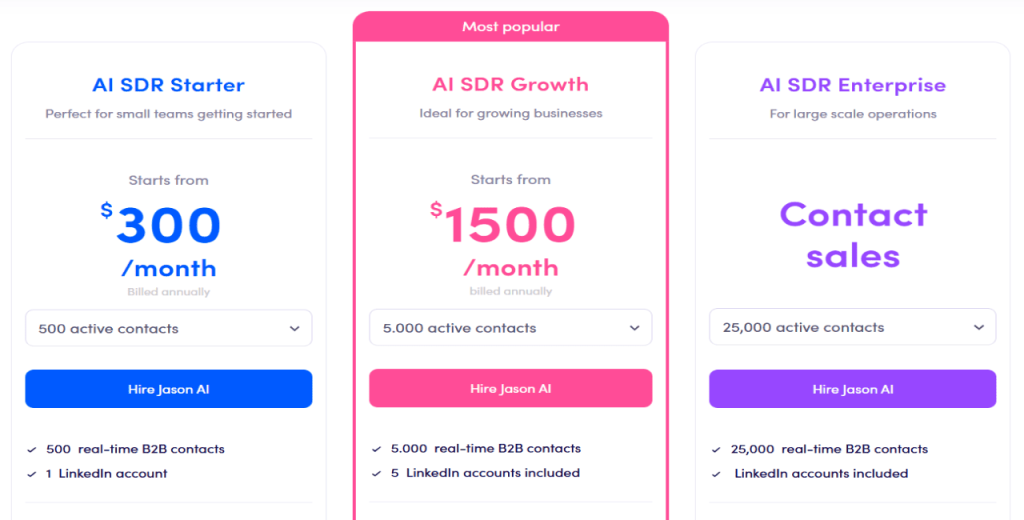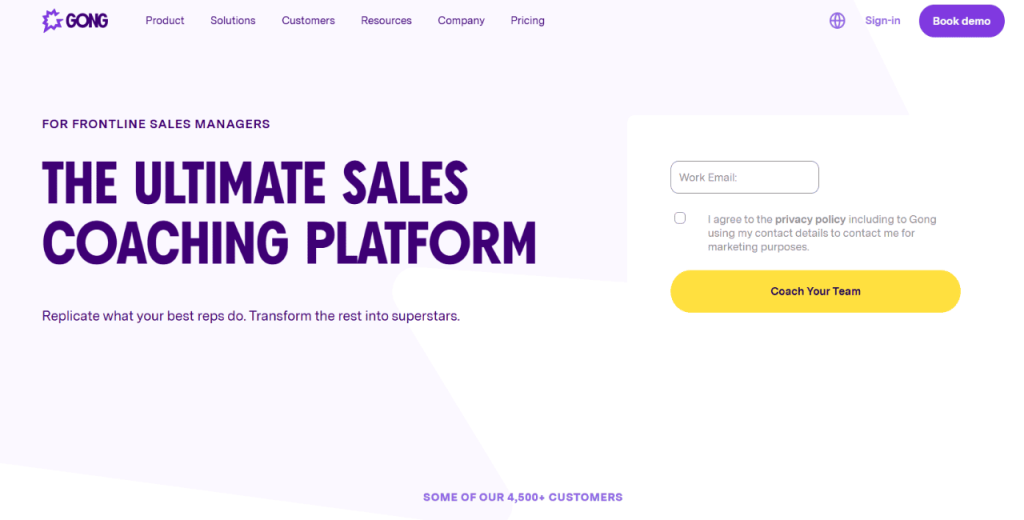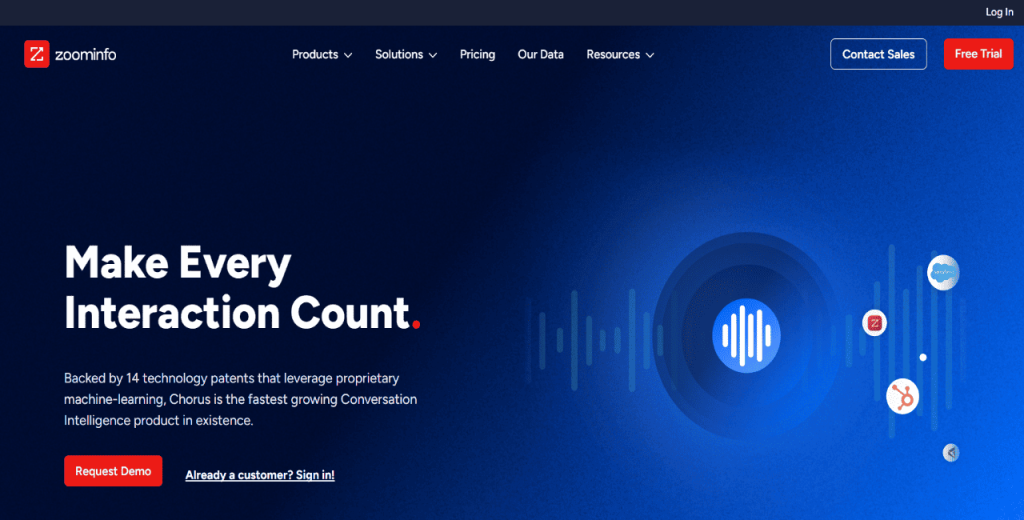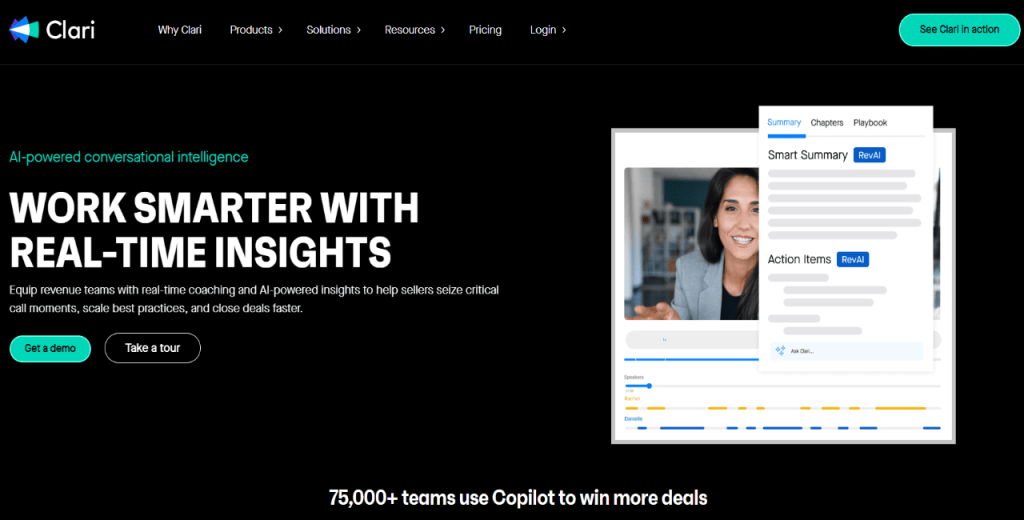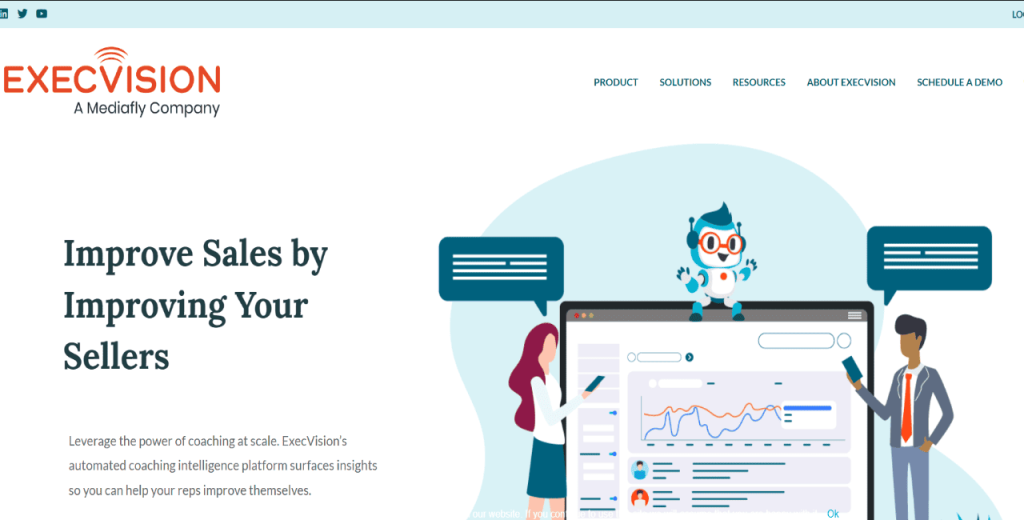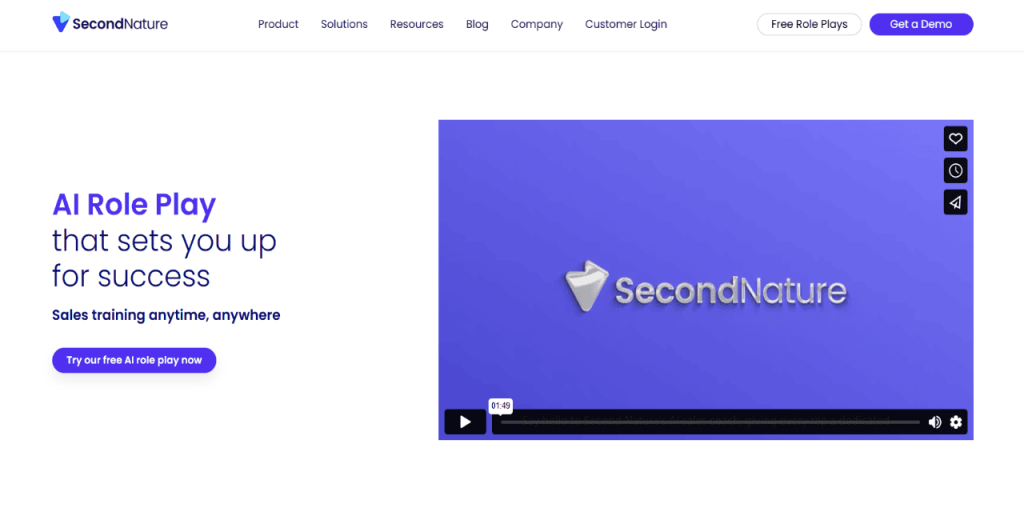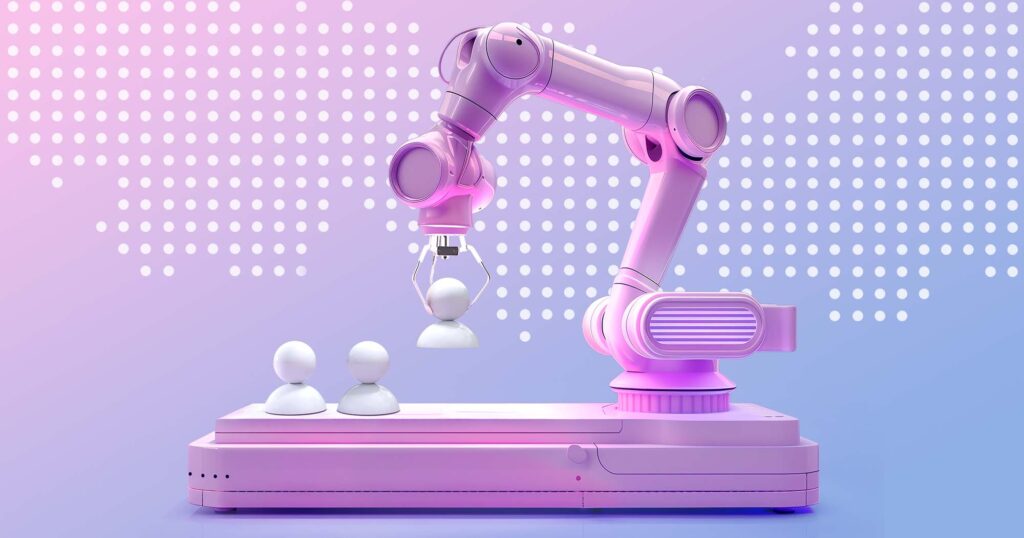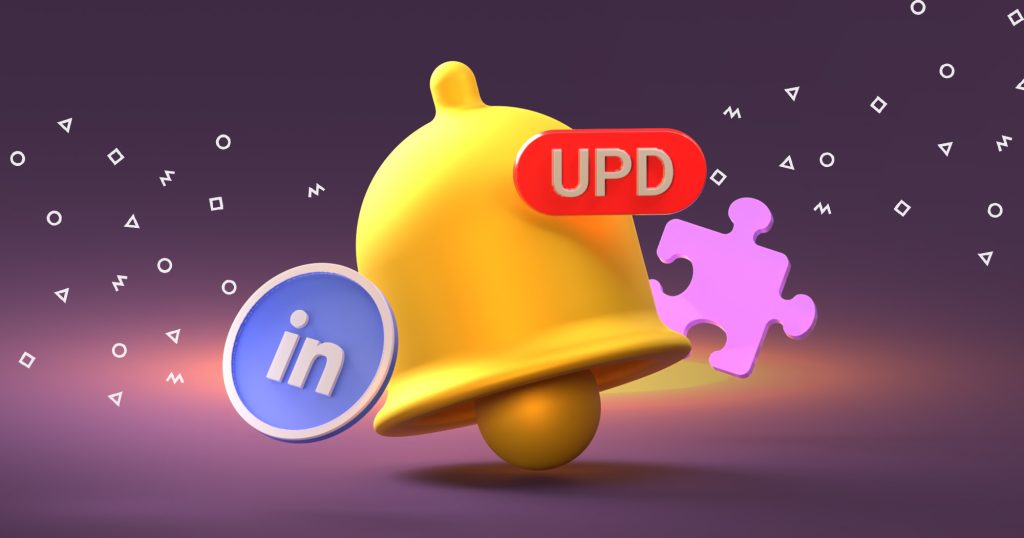Let’s start with some thought-provoking stats.
7 in 10 sales teams miss their annual targets. On top of that, 40% of businesses report struggling to provide their sales representatives with adequate training.
But there’s a silver lining.
AI is here, and it’s already reshaping sales coaching in a big way.
And as a sales leader or business owner, you don’t want to be left behind.
Because if you don’t integrate AI into your sales systems, your competitors will, and in the process, close more deals with less effort.
Which begs questions such as:
- What is AI sales coaching?
- Why should you care?
- Which are the best AI sales coaching tools?
Well, we’ve got these answers and more in the sections below.
Let’s dive right in.
What is AI sales coaching?
AI sales coaching uses artificial intelligence to deliver personalized training and real-time feedback to sales professionals.
It enables reps to run role-plays, practice pitches, test product knowledge, and plan the next steps using AI-powered tools. These tools integrate with CRM systems to provide actionable feedback based on actual sales activity.
And because the training is available 24/7, sales professionals can train on their own schedule, as often as needed.
AI coaching reduces the time managers spend on routine training and helps teams improve faster through daily, on-demand practice.
Why is AI sales coaching gaining momentum in 2025?
It’s 2025. And the business world is as competitive as ever.
Sales teams need faster training, smarter insights, and more consistent support. It’s not surprising that AI sales coaching is picking up fast.
So what exactly is changing? Let’s look at the most common challenges sales teams face—and how AI coaching solves them.
| Sales team problem | AI coaching fix |
| Managers don’t have time to coach | AI automates routine coaching tasks |
| Reps need help in the moment | 24/7 real-time coaching, role-plays, feedback |
| Data is hard to review manually | AI reads call transcripts and CRM data |
| Teams are spread out or remote | Cloud-based coaching works from anywhere |
| Onboarding is inconsistent | AI ensures everyone learns the same process |
Below are some reasons behind this trend in details.
Sales managers don’t have time to coach everyone.
In many companies, one manager oversees five or more reps. Additionally, they must review calls, provide feedback, and track progress, which can require several hours. AI sales coaching software helps ease the pressure by automating routine coaching tasks.
Reps want readily available coaching
Salespeople often face challenges in the moment, before a big call or after losing a deal. With AI, they can get instant feedback, run role plays, and sharpen pitches anytime without waiting for a manager meeting.
CRM and call data are now easy to analyze.
As stated, AI tools can integrate with CRMs, call recordings, and meeting transcripts. As a result, sales reps get feedback based on their actual sales activity, not just general advice.
And the more the reps use the AI, the more intelligent it becomes. Therefore, salespeople can receive more relevant suggestions, spot patterns in their conversations, and improve specific skills over time.
Remote and hybrid work need new coaching methods.
Many sales teams operate across multiple time zones or remotely from home. AI coaching provides every sales representative with the opportunity to train and improve, regardless of their location.
That way, the team can stay on course without needing in-person sessions.
Companies want consistent onboarding and skill development.
AI training agents ensure reps learn the same messaging, follow the same process, and get regular feedback. The consistency reduces training gaps, speeds up onboarding, and helps new hires ramp faster, with fewer mistakes along the way.
How does AI sales coaching actually work?
To understand how AI sales coaching works, we need to break down how the tools behind the phenomenon operate.
For starters, most tools use genetic AI, a technology built on trusted language models and reasoning engines, to simulate real coaching sessions and guide reps in real time.
That said, here’s how AI sales coaching tools typically work:
- Agent builder: These allow you to create custom AI agents. The users can assign specific roles, define tasks, and shape the agent’s responses using natural language instructions. In sales coaching, this means the agent knows how to act during a pitch review.
- Skills library: Sales coaching agents come preloaded with skills for training, such as objection handling, active listening, and product pitching. These enable users to get up and running without having to build everything from scratch.
- Atlas reasoning engine: The engine is the decision-making brain behind the coaching agent. It processes sales conversations, understands the intent, and determines how the agent should respond. In addition, the engine ensures feedback is thoughtful and based on real context.
- Data integration: The agent uses real-time CRM and customer data to tailor feedback to specific sales activity. For example, it may change the role-play based on deal size, buyer type, or past interactions.
- Autonomous execution: The agent listens, analyzes, and delivers feedback during or after a session. Sales reps receive advice on tone, clarity, and objection handling right after each session. The best part is that managers don’t have to be present.
To make it even easier, here’s a breakdown of what happens under the hood in a typical AI coaching tool.
| Step | What happens |
| 1. Create agent | You build a custom AI coach using natural language |
| 2. Load skills | Tool comes with prebuilt coaching abilities (e.g., pitch) |
| 3. Connect data | Tool syncs with CRM, call logs, emails |
| 4. Real-time feedback | AI gives instant advice on tone, objections, clarity |
| 5. Learn & adapt | System gets smarter the more reps use it |
Because of how AI sales coaching works, reps can repeat practice sessions regularly to improve their skills and build confidence through real-time, personalized feedback.
What’s new in AI sales coaching for 2025?
Changes in AI sales coaching happen so fast that it can be hard to keep up.
Here’s what’s hot right now.
Real-time conversation feedback
AI can now listen in on calls (with consent) and give on-the-spot suggestions. It identifies filler words, missed buying signals, or unclear phrasing during a sales call.
As a result, sales representatives can make the necessary adjustments immediately, not after the fact.
Personalized coaching plans
AI has made it easier to reduce cookie-cutter sales advice.
Platforms like Gong and Salesloft, for instance, can tailor weekly coaching plans based on a rep’s performance trends, talk ratios, and common objections. The result is faster growth with less manager oversight.
Emotion and tone analysis
Advanced models can now measure tone, pace, and emotional cues from the salesperson and prospects. Thus, if a buyer sounds hesitant, the system can flag it as a soft “no” or suggest follow-up phrasing to re-engage them.
Script generation that changes in real time
Custom GPTs can allow sales reps to generate or modify scripts in real-time based on what a buyer says. For instance, if the buyer brings up pricing early, the script changes direction on the fly to keep the conversation on track.
Multichannel coaching insights
Sales coaching goes beyond calls. AI SDR agents can now write and review emails, LinkedIn messages, as well as voicemails to give a 360-degree view of a rep’s outreach quality and consistency. In addition, the agent can offer cross-channel suggestions to improve close rates.


